Autumn has officially started, however, temperatures aren’t exactly plunging here in the UK, at least not to the level we consider normal. Blame it on global warming, I say! After a surprising Summer with extremely high temperatures, it looks like Autumn didn’t want to stay behind and graced us with many warm sunny days. I’m not complaining and you shouldn’t too if you’re on the same boat, however, this weather can be deceiving. As soon as the sun is out it is pretty chilli out there and you wanna make sure you’re not committing any offence that can damage your hair so here are some tips to help you succeed in your curly hair winter routine.
As I see it, there is a normal order to things. Autumn is the transitioning season that takes us from Summer to Winter gradually preparing us for the chock we’re about to experience. However, this year Nature is playing tricks on us (much to our fault given the way we’re treating the planet) and our brain may be tricked into thinking we can still get away with skipping some steps in your curly hair routine. Just so you know…
YOU CAN’T!
The Dangers of Winter
Unless you’re living in some tropical place or in the Southern Hemisphere, where it’s actually Summer or winter is very mild (boohoo to you! 😛 😉 ), we all know how Winter is supposed to look like in the Northern Hemisphere.
One of the first signs that Winter is coming (high five to all GOT fans 😆 🙂 ) is that the days get shorter, but even more evident than that is the drop in temperatures. Though Summer is not without its dangers, Winter offers a combination of climatic changes that can quickly damage curly hair.
The convergence of low temperatures, drop in hair humidity and dry and cold winds pose a major danger to curly hair and contribute to dry hair, not to mention the increase of rain which ruins many curly hairstyles. Therefore, it is important to keep your hair well moisturised.
Same Principle. Better Consistency!!
As Winter comes there seems to be some sort of rush among naturalistas to have a major hair care routine overhaul and be ready for what’s about to come. However, if you have good hair care practices already set in place what you do to keep your hair moisturised during Winter shouldn’t be that different from what you’ve been doing during warmer seasons of the year.
Confused?!
What I mean, and what most people forget, is that moisture comes from proper hair cleansing that removes product residue, dirt, oils, air pollutants, sweat and dead skin cells from the hair and scalp. This allows the cuticles layers to lift and have the hair ready to receive water, as in moisture the thing our hair craves. For this, you need a sulphate free shampoo, and I’m not talking about co-wash or similar practices adopted by many.
In reality, it’s quite simple and not much different from what you did when you had relaxed hair, except that now you’re using a gentle shampoo to do the same task. If you’ve been doing this then you’re on the right path. 😉 😀
Once you do this, the key to keeping your hair well moisturised during winter boils down to consistency and effectively delaying moisture release.
Okay, let’s talk about what you shouldn’t be doing.
5 Things To Avoid To Succeed In Your Curly Hair Winter Routine
#1| Delaying Wash Day
I’m not gonna point fingers on anyone because we’ve all done this. We’ve all have days where snuggling under a blanket with the TV remote in one hand ready to explore Netflix and a side of popcorn (or your favourite snack) with a favourite beverage is way more appealing than washing our hair on a cold Winter day. Just writing this makes me want to drop everything and seat cosy on my couch, but I’m not going to. 😉
The point is, it’s okay to delay your wash day for a few days once in a while. This is not gonna damage your hair if you’ve been a good girl. However, there is a problem when something sporadic becomes frequent.
In normal conditions, defined by hair properly washed and moisturised and not exposed to specifically high or low temperatures, hair starts losing moisture after two/three days which means that by day seven your hair needs to be washed again to be moisturised. Therefore, it is ideal to wash your hair once a week and, ultimately, not longer than 10 days.
What happens if you wash your hair every two weeks?!
Well, to me you’re pushing it, you’re asking for trouble. You’ll deal with issues such as dry hair, dry scalp and/or breakage. Try to stick to washing your hair once every seven days, 10 tops. With our busy lives, work, exercise and level of air pollution our hair and scalp only benefit from this regular practice.
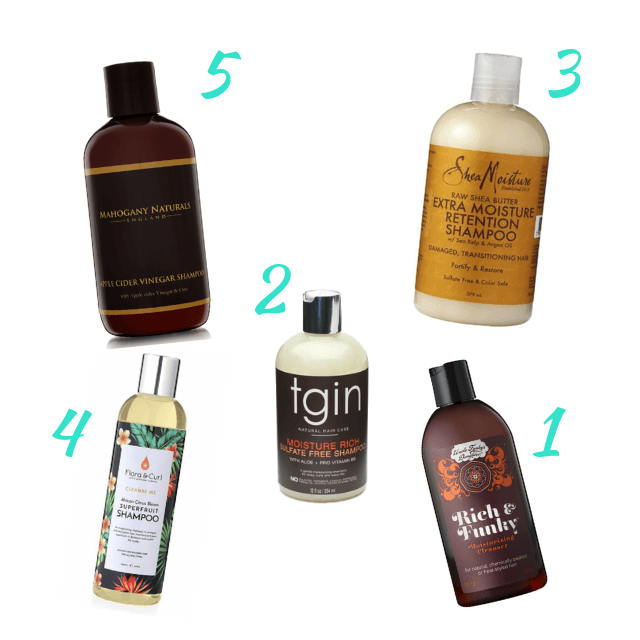
Some of my Picks
1 – Uncle Funky’s Daughter Rich & Funky Moisturising Shampoo
2 – TGIN MOisture Rich Sulphate Free Shampoo
3 – Shea Moisture Extra Moisture Retention Shampoo
4 – Flora & Curl African Citrus Superfruit Shampoo
5 – Mahogany Curls Apple Cider Vinegar Shampoo
#2| Co-Washing
If you’re a fierce supporter of co-washing you probably heard all about how shampoos are too drying for curly hair and a co-wash or cleansing conditioner is so much better and gentle to naturally curly hair. However, this is not so simple.
If co-washing is the chosen method to clean your hair weekly and remove product residue and all other daily substances that attach to your hair then you’re depriving your hair of moisture.
Co-washes or cleansing conditioners do have surfactants in them, however, because they are technically still conditioners they have more conditioning ingredients. These are ingredients that stick to the hair shaft working as anti-statics to smooth the hair and facilitate manipulation and detangling. Behentrimonium Chloride and Behentrimonium Methosulphate are surfactants that also work as conditioning ingredients but have more conditioning than cleansing properties.
This may sound great but in reality, a co-wash or cleansing conditioner doesn’t provide the same level cleanliness that a well-formulated sulphate free shampoo does. In fact, if this is your preferred hair cleansing method you’re adding more product buildup to your hair and worsening any issues with hair moisture since product residue is stacking on top of itself.
Your hair may feel soft and smooth when washed, but that happens because that’s the ingredients in your conditioner/cleansing conditioner/co-wash are supposed to make your hair feel. Meantime, while your hair feels soft underneath all the gunk, your hair is DRY!
Leave co-washes or cleansing conditioners for a mid-week moisture boost or style refresh (here are some options) and keep a sulphate free shampoo for your weekly wash day. (Note! If you use products with unsoluble silicones you’ll need a stronger shampoo. Read this post to know more about silicones)
#3| Not Moisturising Properly
Though washing your hair properly is what moisturises it, it’s very important to delay the release of water from inside your hair’s cortex. This is even more important if you have high porosity hair whose cuticle layers are overly ‘open’, missing or broken and unable to retain water in.
To keep your hair moisturised for the longest time possible it’s important you use products that are rich in oils and butter and have a heavier consistency. As you know, these are occlusives, they create a barrier between the hair and the environment delaying moisture release (not blocking it as some may think).
So, as temperatures drop you should gradually move from a liquid leave-in, hair milk or light moisturiser to more consistent products like moisturisers, a whipped cream butter and or heavy butter.
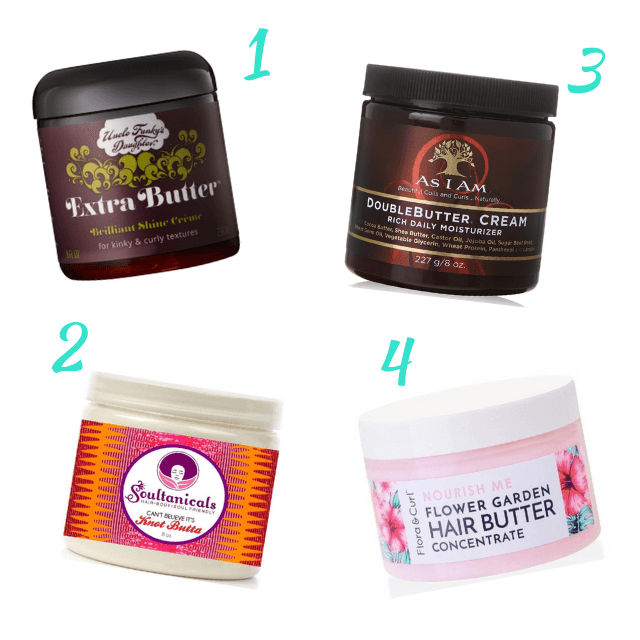
Some Choices
1 – Uncle Funky’s Daughter Extra Butter Brilliant Shine
2 – Soultanicals I Can’t Believe It’s Not Butter
3 – As I am Double Butter Rich Moisturiser
4 – Flora & Curl Flower Garden Hair Styling Butter
#4| Not Deep Conditioning
Some people follow the school of thought that deep conditioners are only necessary when your hair askes for it and that there is no need to engage in this practice regularly. Though some professionals I respect, not all, subscribe to this I object to this notion.
The first problem I see with this assumption is that most people do not know when and even if their hair is ‘asking’ for a hair treatment and which one it is asking for (thus, why it’s important to know your hair and not follow other peoples practices and use of products!!!).
The second issue I have is that our hair is always under some sort of aggression. It could be the weather (e.g. low or high temperatures, cold hair breeze, UV radiation, etc.), manipulation (e.g styling, detangling, tools, hair brushing against clothes) chemical treatments (e.g. hair dyeing, bleaching or hair botox/straightening treatments) or even just from washing our hair in which water can cause hygral fatigue. (Read 5 Reasons Why Damaged Hair Is Inevitable & How You Can Fix It to know more).
A deep conditioner can, not only, ‘repair’ or patch up damaged areas of the hair to a manageable condition (definitely one of its biggest features), but it can also maintain and improve its health as well as offer some protection against the external aggressions I mentioned earlier. This doesn’t mean that if you continuously engage in damaging hair care practices your hair won’t be damaged. It just means that damage will take longer to occur – it will delay it!
Therefore, my advice is to deep condition your hair weekly after shampooing especially now that the temperatures and getting low and the air is so drying to curly hair. If you don’t know what treatment your hair needs it is best to focus on moisture rather than protein. Moisture is easier to correct while protein excess causes severe breakage and takes weeks to correct.
If you’re too scared to get things wrong you can read this post it will give you some guidance. Alternatively, because I am a BIG supporter of deep conditioning it’s no surprise I wrote a digital guide giving you all the deeds you need to know about deep conditioning (check below). Deep conditioning has been crucial to my hair health and hair length retention and I believe it can fundamental to yours too.
This guide goes deep into the different types of treatments, how to identify them, ingredients in them, how to fix over moisturising, protein sensitivity, protein excess, and much more. You can know more about the guide here.
For product suggestions, read 7 Protein Free Moisturising Hair Treatments For Curly Hair and 7 Protein Treatments To Strengthen Curly Hair.
#5| Staying Away From Glycerin
In the natural hair community, glycerin, much like silicones, has had a bad reputation for a long time and this has taken many naturalistas to stay away from products that have it in their formulations. The impact is so big that brands have taken this ingredient from their products and/or started to label their products has ‘Glycerin Free’.
However, glycerin is a humectant. It attracts moisture to itself which means that, in products, glycerin will attract and retain moisture to the hair, effectively delaying water evaporation and keeping the hair moisturised.
What many argue, however, is that when there is low humidity in the air glycerin will have the opposite effect – it will take moisture from the hair and make it dry. This is true, as a humectant, glycerin will always attract and retain moisture to a place where there is little or no moisture. So, if your has more moisture than the air glycerin will remove it and take moisture from your hair.
However, the solution to this problem is to make sure (1) the product you’re using is not based in glycerin, (2) that glycerin comes after the first 5 ingredients, (3) that the product’s formula also has a good balance of oils and/or butters to help seal the hair and prevent glycerin from taking moisture from your hair (4) look for other, less powerful humectants because, flash news, the ‘glycerin free’ products many are buying still have humectants in them!
So you see, when used well, glycerin can be a good ally to keeping your hair moisturised. If you’re ready to consider it read this post to help you master humectants, to find alternatives to glycerin and to know how to avoid the effects of glycerin when there’s low air humidity.

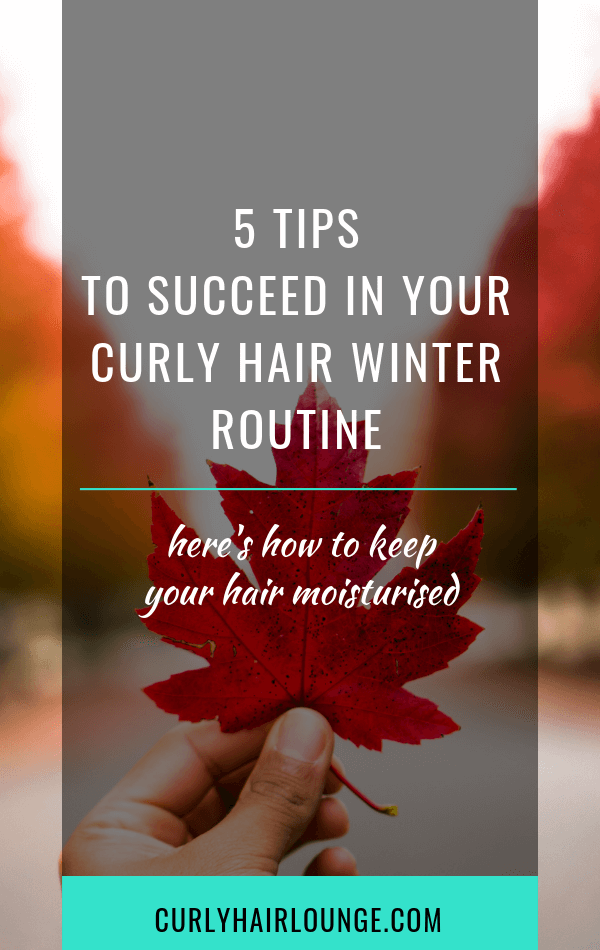
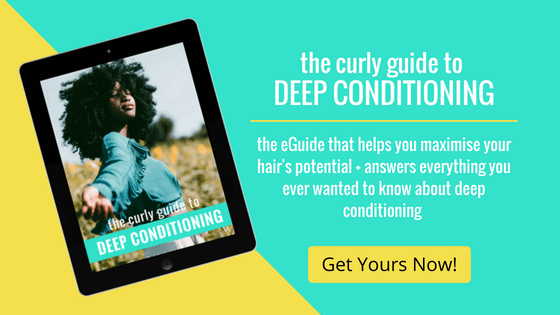
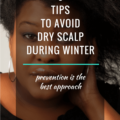




2 thoughts on “5 Tips To Succeed In Your Curly Hair Winter Routine”
Love the article and thanks for the reminder. Sometimes we get so busy that we forget to swap out our summer stash to a winter stash. Before my initial hair wash I do an apple cider vinegar (part cider/part water) rinse, then I proceed to wash. I am going to try the TGIN Shampoo. Thanks for sharing your favs.
Sometimes I skip the deep conditioner, which is a no-no. I am definitely going to deep condition on a regular this winter. At the moment I am using Kinky Curly Custard gel and leave in for my winter stash. Do you have any suggestions on other Glycerine free products that you like? Also, should I avoid products with honey as well?
Hi Gwen, glad you’re taking note to not let Winter get the best of your hair. Product suggestions are dependant on hair needs and hair care practices. The products featured in this post are general suggestions of some of my favourite brands or products with formulations that I like. Before buying any product it is mandatory to read the ingredient list and check if it fits into your hair needs/routine. For specific help, we’d need to have a consultation. Kinky Curly products also work well (especially together!), if your hair likes them stick with them.
You don’t need to avoid product with honey or glycerin even (both humectants). Check, the post linked in this post to know more how to address humectants. I specifically don’t avoid product with glycerin, depending on the weather, I just pay attention to where it’s placed in the ingredient list. 🙂